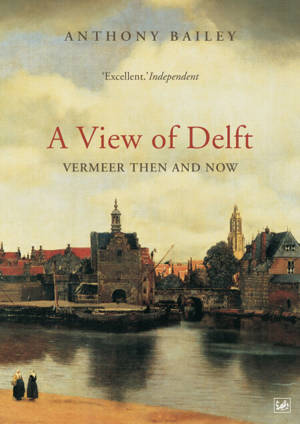
- Afhalen na 1 uur in een winkel met voorraad
- Gratis thuislevering in België vanaf € 30
- Ruim aanbod met 7 miljoen producten
- Afhalen na 1 uur in een winkel met voorraad
- Gratis thuislevering in België vanaf € 30
- Ruim aanbod met 7 miljoen producten
Zoeken
Omschrijving
Vermeer has always been considered the most elusive of great artists, but this book tracks him down in his home town. It takes the reader back to seventeenth-century Delft, in a piece of historical writing that does justice to its now timeless subject. Anthony Bailey makes use of the scholarly research that has accumulated in the last century, as well as recent findings, and then reaches beyond these facts to expose the hidden Vermeer. The result is a vivid, convincing portrait of the Protestant innkeeper's son who married a prosperous Catholic girl and had 15 children of whom 11 survived. Vermeer died relatively young and left fewer than 40 pictures. Many of these pictures are indeed masterpieces, and Anthony Bailey examines the scientific expertise which lies behind their calm mystery. He introduces us to Vermeer's colleagues and fellow-citizens, and charts his celebrity as it slowly spread out of Holland and encompassed the world. He examines Vermeer's effect on many creative and destructive people, including Proust and Hitler. A View of Delft is a highly original attempt to get at Vermeer's life and personality, by setting him imaginatively in the context of Delft, its culture and history.
Specificaties
Betrokkenen
- Auteur(s):
- Uitgeverij:
Inhoud
- Taal:
- Engels
Eigenschappen
- Productcode (EAN):
- 9781473522060
- Verschijningsdatum:
- 23/04/2015
- Uitvoering:
- E-book
- Beveiligd met:
- Adobe DRM
- Formaat:
- ePub

Alleen bij Standaard Boekhandel
+ 14 punten op je klantenkaart van Standaard Boekhandel
Beoordelingen
We publiceren alleen reviews die voldoen aan de voorwaarden voor reviews. Bekijk onze voorwaarden voor reviews.







